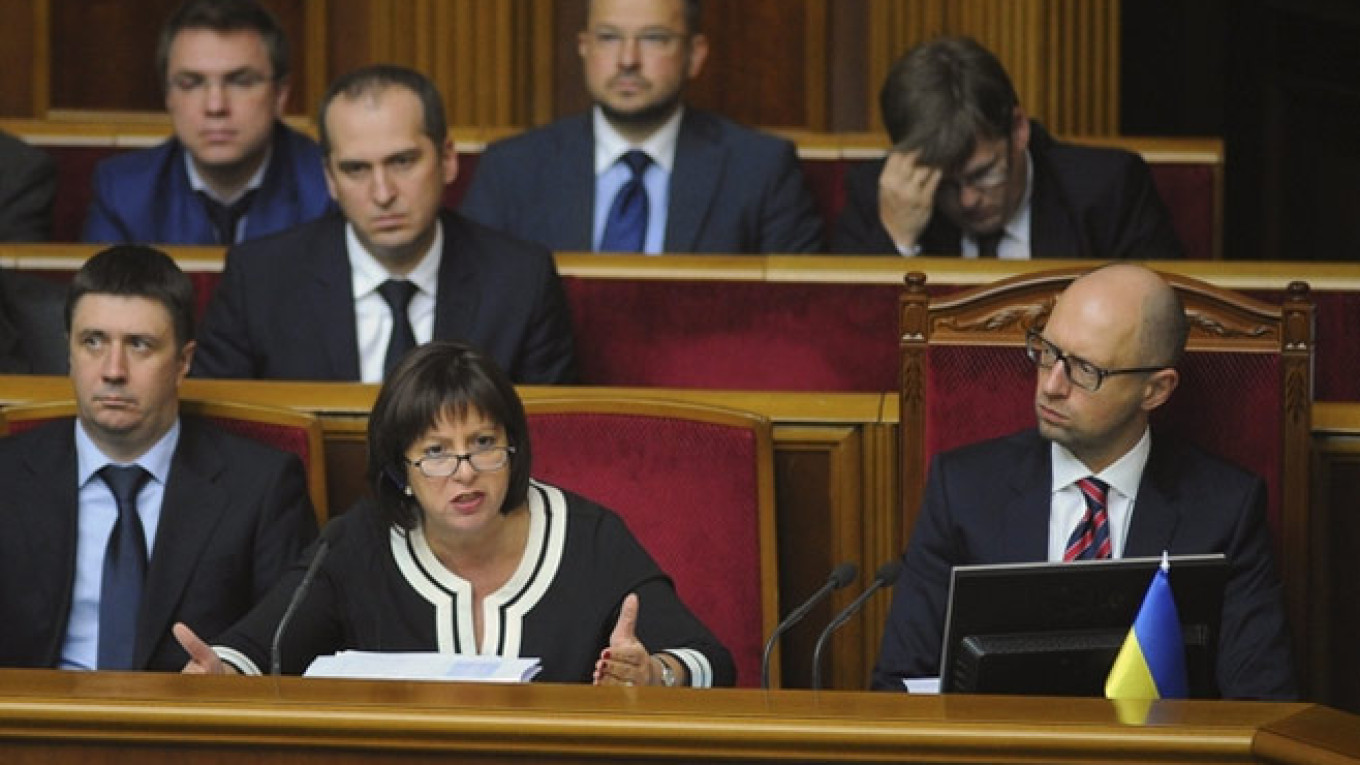Most reasonably impartial observers agree that Ukraine now has the most reformist government since independence. The managing director of the IMF, Christine Lagarde, even stated that "Ukraine has surprised the world and to achieve so much in such a short period of time is just nothing but astonishing."
But it seems Ukrainians themselves are increasingly dissatisfied. Violence erupted in Kiev during protests against the new constitution, in which three policemen died, because part of society was rejecting the change. The parliamentary pro-reform majority cracked, as three of its parties voted against constitutional changes, accusing President Petro Poroshenko of pushing them to satisfy the West.
Reforming Ukraine is a daunting task. The low trust in the political process engenders constant questions over legitimacy, a consequence of the Soviet legacy and 24 years of false reform promises in the post-Soviet era. The influx of a new generation of policy-makers and government officials has not renewed trust in political leaders.
The erosion of trust is exacerbated by oligarchs and a media controlled by interest groups. These entrenched elites have the most to lose if the reform agenda is successful. More than 50 percent of the domestic media market is registered with offshore companies according to Media Ownership project. Others are linked to oligarchs who use their television channels as political instruments.
Despite signing an association agreement with the EU, decentralizing the tax regime and ensuring that a new constitution gives more power to local communities, a poll by the International Republican Institute reports that 72 percent of Ukrainians believe the country is moving in the wrong direction and only three percent are happy with the speed of reforms. Anti-reform revanchist forces could mobilize such high dissatisfaction to stir further destabilization.
Explaining complex and painful change is also difficult. Many issues that the Ukrainian government says it wants to tackle, such as gas market reform, devolution, public finance reform, and corruption require a smarter communications policy to get a buy-in from citizens.
There is a lack of inclusive dialogue in society. After the violent protests near the parliament, Poroshenko spoke about the need to explain the constitutional changes to the wider public. But there are few platforms for exchanges of opinions that could influence policy in non-violent ways, via nongovernmental organizations. Only around two percent of citizens participate in policy deliberations at local levels. A large part of society remains outside of this closed-circle dialogue, and thus is forced onto the streets to express their views.
Ukraine is a country at war, which creates fertile ground for radical movements. Approximately 25,000 Ukrainians have been registered with the National Guard or territorial defense units and many have now faced the endemic bureaucracy and corruption when applying for war veteran status or financial compensation.
These warning signs to Ukraine's leadership and civil society have gone largely — and dangerously — unheard. Only one region has appointed its head of police via an open, independent competition. It is important that Ukrainians not only see justice and prosecution of corruption, but feel they have an actual stake in shaping a transparent and open Ukraine.
The Ukrainian government needs to manage expectations domestically and internationally. It has to be more open with information and establish a public space for inclusive debate. Ukrainian NGOs, often funded by the West, also bear responsibility for ensuring that dialogues engage more citizens.
If recent trends continue, Ukraine will suffer further destabilization and the solid efforts of the Ukrainian reformers to date will be wasted.
Orysia Lutsevych is manager of the Ukraine Forum in the Russia and Eurasia Program at Chatham House. This comment was originally published on Chatham House's website.


